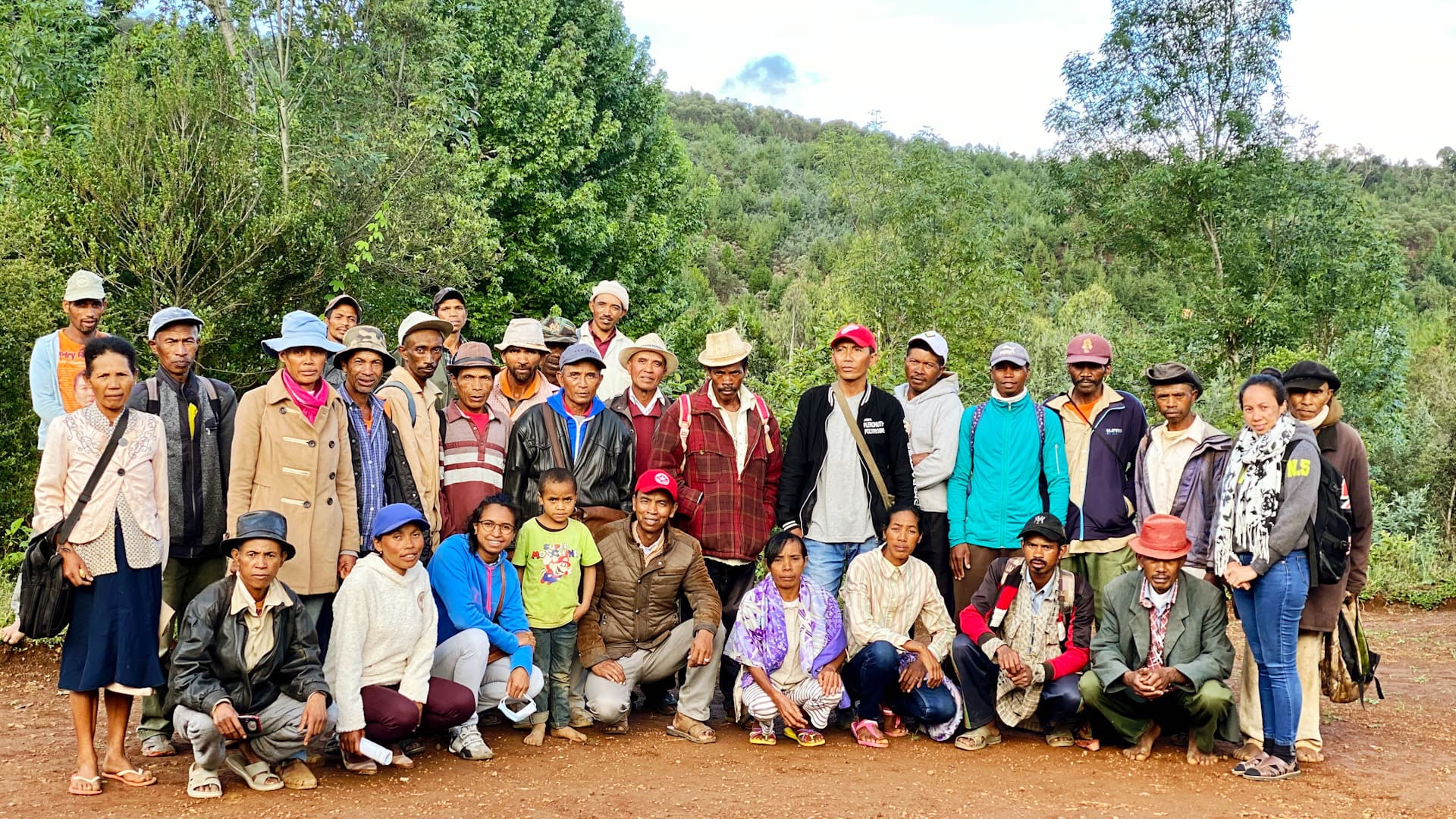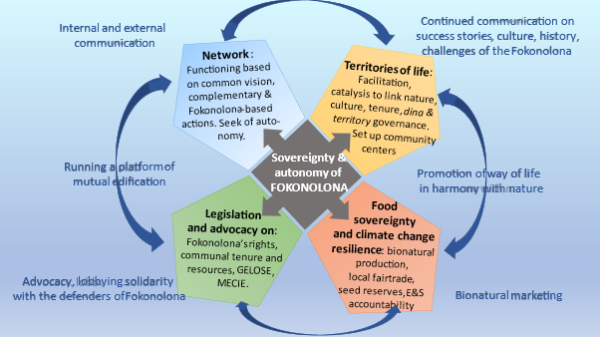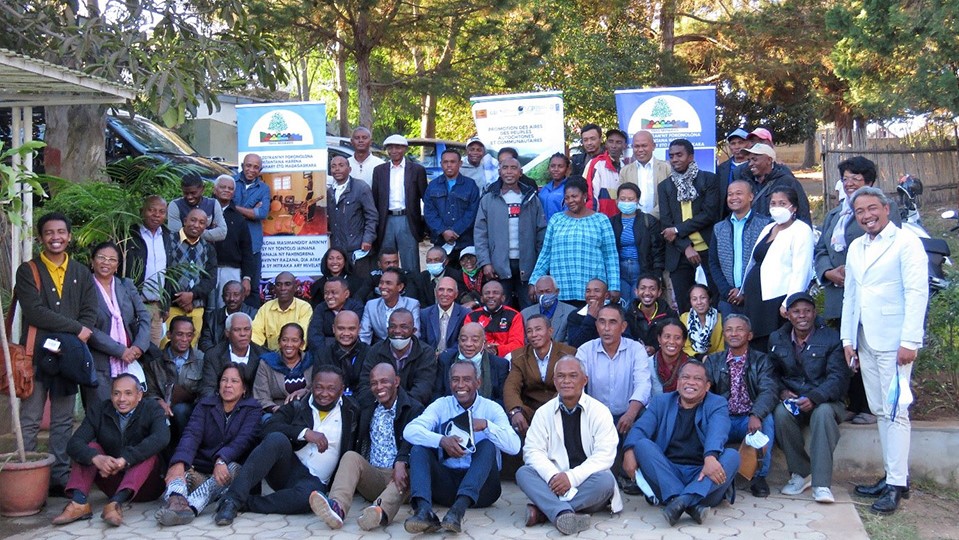National networks TAFO MIHAAVO and FANONGA FOKONOLONA use strategic planning process to support community self-empowerment and sovereignty
First published on 09/21/2021, and last updated on 07/20/2022
By Vololoniaina Rasoarimanana (on behalf of TAFO MIHAAVO, ICCA Consortium Member, and FANONGA FOKONOLONA)
The island of Madagascar in the Western Indian Ocean is well known for its natural and cultural diversity, with 80% of the country’s plant and animal species found nowhere else on Earth and 18 ethnic groups, each with their own dialect. The traditional form of the Malagasy community is called Fokonolona. Many of the country’s landscapes, territories and areas have been conserved by these communities for generations because they are vital to their ways of life. Often, they are the very symbol of a community’s history and identity, the result of collective awareness that evolved over long periods of time and a shared effort to ensure the integrity of nature.
In 2012, a network of Fokonolona called TAmbazotran’ny FOkonolona MItantana HArenA VOajanahary eto Madagasikara (TAFO MIHAAVO) was established by a declaration of representatives of community organisations grouped into unions and federations. Since then, it has grown to include nearly 600 communities supporting the customary governance of around 20,000 km2 of forests, lakes, marine areas and grazing lands across all 22 regions of Madagascar. The members of TAFO MIHAAVO are acting de facto or through the application of the 1996 GELOSE law on the local management of renewable natural resources. This law emerged from the National Environment Action Plan in 1992, mainly driven by the principle of the country strategy for the UN Convention on Biological Diversity (CBD) to empower communities in natural resources management.
TAFO MIHAAVO has adapted as much as possible to the challenging circumstances of the COVID-19 pandemic and managed to undertake a strategic review and strategic planning process from February to July 2021. With support from FANONGA FOKONOLONA (a group of activists, scientists, and resource persons from NGOs and institutions that has been supporting the network from its beginning), the ICCA Consortium, and the UNDP GEF Small Grants Programme (SGP), TAFO MIHAAVO reviewed its 2013-2020 strategic plan with Fokonolona at grassroots, subnational and national levels and developed a 2050 vision, objectives for 2030 and a 2021-2025 action plan.
Through this process, the network produced a framework showing the shared vision, values and principles, thematic priorities, strategies, and actions to be undertaken from local to international levels. This framework has already inspired the conceptualization and implementation of thematic and regional strategies and actions, especially with the financial support of the GEF SGP in Madagascar.
Vision, lessons learned and challenges for transformational change: The network reaffirmed its 2050 vision as well-being and life in harmony with nature in territories of life where the Fokonolona are self-empowered and sovereign.
From 2021 to 2025, TAFO MIHAAVO’s members are encouraged to identify and support successful and challenging cases of Fokonolona fighting for their rights, their food sovereignty, institutional autonomy, and responsibility in the governance of their territories of life (several dozen in at least 15 of the country’s 23 regions).
Indeed, TAFO MIHAAVO has learned that for transformational change, the movement must be legitimate and rooted in strong commitment and capacity of its members to scale up their actions into a national movement for institutional and political change and coordinate with the FANONGA FOKONOLONA towards this objective.
Land grabbing, along with the human and institutional tendency to exert and maintain personal power over vulnerable people through position, money or other means, even by actors who are supposed to be in support of communities, are among the most challenging situations for this period.

Key outcomes of the process: At regional and national levels, the bureau of TAFO MIHAAVO and FANONGA FOKONOLONA will set up joint annual action plans. Other stakeholders such as NGOs, platforms of civil society and representatives of the ministries in charge of land tenure, decentralization, fisheries, and the post-2020 global biodiversity framework (which is expected to be adopted at the 15th meeting of the Conference of the Parties to the CBD in May 2022) committed to sharing the voice of the Fokonolona and to collaborating on their rights and self-empowerment advocacy.
The objectives of the strategic plan are expressed as the following:
- Fokonolona strengthening their capacities to govern, conserve and sustainably manage their natural and cultural heritage in their territories of life,
- Fokonolona acting for food sovereignty and climate change resilience,
- Fokonolona advocating for their rights and empowerment through appropriate legal recognition (building on an existing article in the national constitution) and implementation and enforcement thereof,
- Fokonolona strengthening the governance and management of their multilevel networks and their collaboration with other actors, and
- Communication and mutual strengthening, as a transversal theme underpinning the previous four axes.

